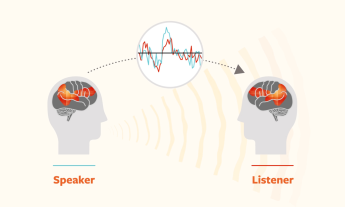
Whatever you may think of the singularity, it’s fun to think what we might do with the cloud-based brain power that Ray Kurzweil proposes in his TED talk.
My guess is, as a first step, we’ll use our hybrid brain power to put a namebadge on everything we forgot the name of. In his science-fiction novel Blindsight, Peter Watts uses “subtitle” as an intransitive verb to describe this action, when his characters grab a tip-of-the-tongue idea from the shared network, using brain inlays.
Early in the book, a character mentions a Necker cube. Right now, you and I have to Google it, but Watts’ lucky protagonist can do this with just his brain:
The term rang a bell. I subtitled, and saw the thumbnail of a familiar wireframe box:

Now I remembered: classic ambiguous illusion. Sometimes the shaded panel seemed to be in front, sometimes behind. The perspective flipped back and forth as you watched.
Subtitling could be the first killer app for our hybrid brains. For me, I even know what I’d pay for it, ballpark — $3 a week for unlimited subtitles sounds fair, up to $5 in a new environment, dropping to $2 at conferences where everyone wears nametags … I’ve clearly thought about this a lot.
So we should think bigger. With a hybrid brain, would you, like IBM’s Watson, read all of Wikipedia, take onboard a ton of information, and start doing analysis of … everything? (Shades of Stuart Kauffman, the theoretical biologist who went to medical school because “I figured somewhere I had to learn a bunch of facts, and if I went to medical school, the bastards would make me learn a lot of facts.”) What would you research, what would you seek to understand, if you had access to a bunch of facts and a side brain just for hard problems? Is the human part of our brain even ready to frame the really big questions we’ll soon have the power to answer?
Meanwhile, Kurzweil himself suggests (possibly without even meaning to) what we’ll most likely use our extra brain for: better social interactions. At least twice a week I’m a test subject in Kurzweil’s little thought experiment — “Here comes Chris Anderson and I have three seconds to think of something clever to say to him” — and hell yes, I would like a hybrid brain for that. Likewise, there are moments when I would trade away the solution to the hard problem of consciousness in exchange for an effective verbal reply to a catcaller on the street. I’d love to set my hybrid brain working on that tricky social interaction: “Cloud, give me something stern enough to shut this guy down, yet funny enough I can walk away, not run.”
Social interaction is a complex problem that all humans, whatever their capacities, could use a little extra help solving. So when we build this shared network, this extra brain, here’s my request: After you teach it all the facts, give it a sense of humor and a sense of empathy.
And a second request: Don’t let it feel sorry for humanity when we mostly ignore all the facts.
[ted id=2015]
Photo: iStock.















